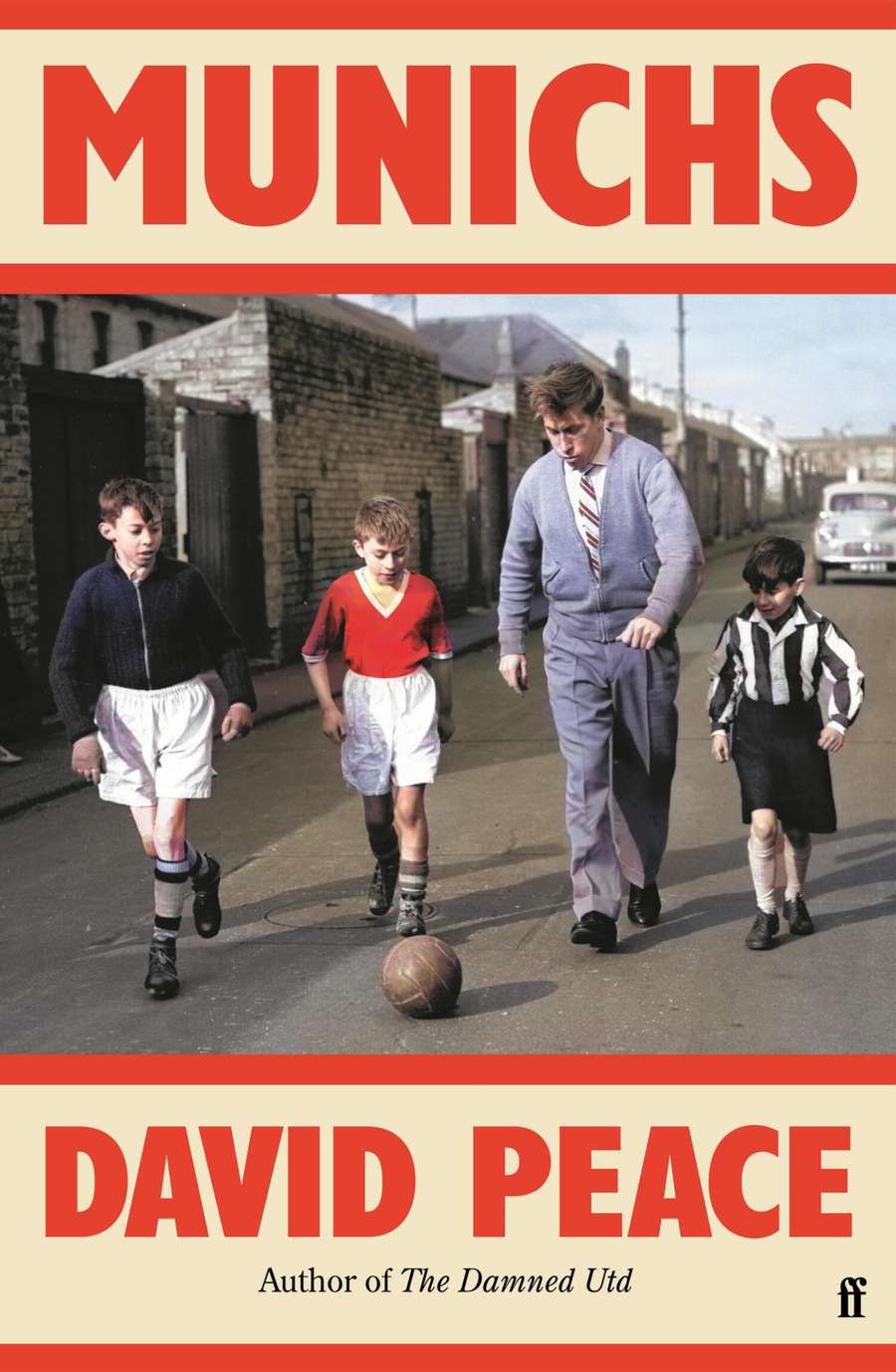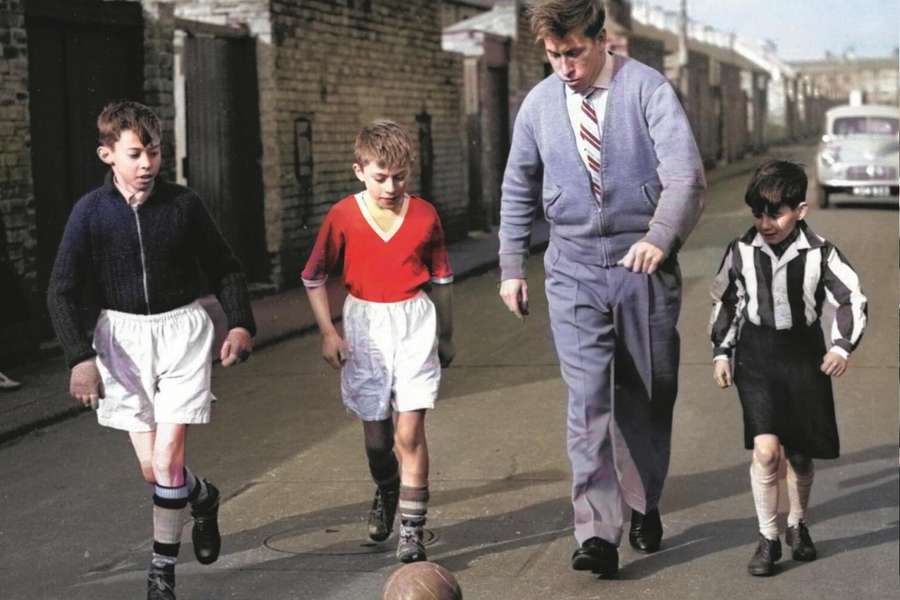He nevertheless clung on to life for 15 days before his name was added to the list of casualties.
The boy wonder naturally plays a part in author David Peace’ latest book, “Munichs”, but so does a lot of people. Yes, Manchester United lost eight players and three officials, but in fact, 23 people died in the plane crash on 6 February 1958. It is all of those poor souls as well as the bereaved which David Peace wishes to shine a light on with his book that was short-listed for the William Hill Sportsbook of the Year.
“The scale of the tragedy affected not only Manchester United Football Club but Manchester as a city and the United Kingdom. But it was world news and made the front page of the New York Times. Whether you liked football or not, people were moved and affected by this. I wanted to really show how Munich affected the people involved in the disaster, the people at the club, the supporters, the journalists, etc. and how people dealt with it in many different ways,” David Peace tells Tribalfootball in an exclusive interview.
The book is a fictional dramatization on the events following the crash, with Peace trying to be the voice of the people involved from all angles.
“I knew that I would need as many different characters and voices as possible to tell the story. In a way, the central character is Jimmy Murphy, the assistant manager. He's probably the character who comes in the most. But then you have Bobby Charlton, his mum, Cissy, Harry Gregg, the goalkeeper, Bill Foulkes, Duncan Edwards' parents. Other people only appear for a few pages,” says Peace who tried to make the voices as distinguishable as possible by writing in the dialect which the person in question would have spoken. Like the Dublin-accent of Billy “Liam” Whelan or the Yorkshire one of Tommy Taylor.
“I had to be careful because in England a dialect can change dramatically over very short distances but the Yorkshire dialect is a lot easier for me to as I am from the area.”
Both of the aforementioned were Man United players, but what “Munichs” manages very well is to highlight how a lot of other people actually lost their lives. Like the journalists travelling with the team to cover the away match in Belgrade.
“When my dad talked about the Munich air disaster, he particularly talked a lot about the journalist Don Davies who had made a big impression on him. I think the journalists get a little bit forgotten. Every year, Manchester United have a memorial but it's focused really on the United players and staff.
“I wanted to convey that the journalists who died on that plane were household names. They were very famous people and the biggest funeral in Manchester after Munich was not for one of the footballers. It was for Henry Rose who, as a journalist, was such a famous celebrity.”
Speaking of his dad, the idea for the book came from David Peace trying to process the death of his father with whom he shared many a conversation about football.
“I was kind of trying to keep the conversation going by writing a book about football. My father and I support Huddersfield Town and in 1953 when my dad was 16, Matt Busby brought what became the Busby Babes to play Huddersfield. He saw a 17-year-old Duncan Edwards in that and he was so great.
“He really admired that Manchester United team that won the league, and in 1958 he was at the last game they played before the crash. Then a few days later he was walking down King's Road in London when he saw the headlines about the tragedy. It affected him, like it affected a lot of people. He kept the program from that match and really treasured it.”
While many were affected, it didn’t take long for derogatory chants to emerge on the terraces.
“That came really fast. In fact, I've read accounts that on the night of the Munich disaster, some people went out and got drunk to mark this setback for Manchester United. And I'm not defending those people in the slightest, but I think it's important to remember that Manchester United and the Busby Babes were so famous and such a phenomenon at the time that a lot of the local neighbouring clubs particularly resented them. Mainly because all the young boys wanted to join Manchester United which was a big problem for clubs like Burnley, Blackburn, Bury, Preston and so forth.
"Manchester United had a nickname as Hollywood United because they were seen as kind of jet-setting. Busby's decision to take Manchester United into Europe added extra glamour and they were the first British football team to be travelling by air which was a glamorous thing. Through that came the resentment.”
One man who comes to the fore in “Munichs” is Jimmy Murphy, assistant manager to Matt Busby at the time of the crash and an extremely busy man after the crash.
“I'm sure Manchester United supporters know, but I felt that other football supporters and definitely people outside of football didn't realise what Jimmy Murphy did. If Jimmy Murphy had been killed on that flight, I don't see how Manchester United would have survived in the same way.
“His personality and his strength of character was what kept them going. And there wasn't really anybody else who could have done that job. “Munichs” is really his story on how he kept Manchester United going at the same time as he was suffering tremendous guilt. He lost close friends, and he'd known many of the players since they were young boys. It’s only about a year or so ago that they put a statue of him up at Old Trafford. Football can be very cruel.”
Munich was a terrible tragedy, but having deep dived into researching for the book David Peace believes there’s something to be learned.
“How the club overcame the tragedy, I think is an inspiration to anybody, regardless of your interest in football or not.”

“Munichs” was one of six titles up for The William Hill Sportsbook of the Year Award which went to Conor Niland for his book “The Racket”.
